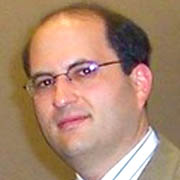Florida Tech College of Science Faculty Wins Hubble Time
By Space Coast Daily // August 18, 2014
Petit to use Hubble to look at a magnetic star
ABOVE VIDEO: The NASA/ESA Hubble Space Telescope is one of the biggest scientific projects of all time. To mark the 15th anniversary on 24 April 2005, the European Space Agency presented a series of unique activities in collaboration with partners all over Europe.
BREVARD COUNTY, FLORIDA — Two members of the Department of Physics and Space Sciences in Florida Institute of Technology’s College of Science have been awarded time on one of America’s most powerful – and famous – research tools: the Hubble Space Telescope.

Professor Eric Perlman and Assistant Professor Véronique Petit will use their time to study different celestial features.
Perlman won time on the telescope for his proposal, “The Physics of the Jets of Powerful Radio Galaxies and Quasars.” He is also co-investigator on three other proposals that received Hubble time, and one archival proposal.

Jets are high-energy flows of matter and radiation that emerge from the host galaxy’s nuclear regions at nearly the speed of light.
Petit will use Hubble to look at a massive magnetic star as part of her winning proposal, “Probing the extreme wind confinement of the most magnetic O star with COS spectroscopy.”
Such observations could not be done with a ground-based telescope.

The Hubble is in such demand that each moment of its time is highly sought after, according to the Space Telescope Science Institute, which operates the science program for the telescope.
Every year, 1,200 or more proposals from around the world are submitted seeking observation time on the Hubble.
About one-fifth of those proposals end up being chosen.
Both Perlman and Petit expect to receive grants of up to $100,000 in association with their Hubble projects.












